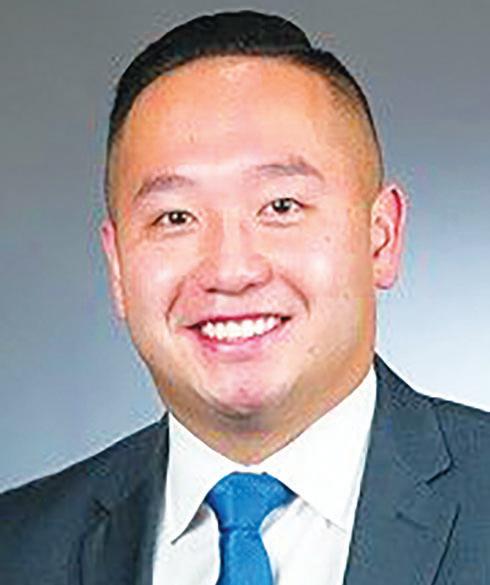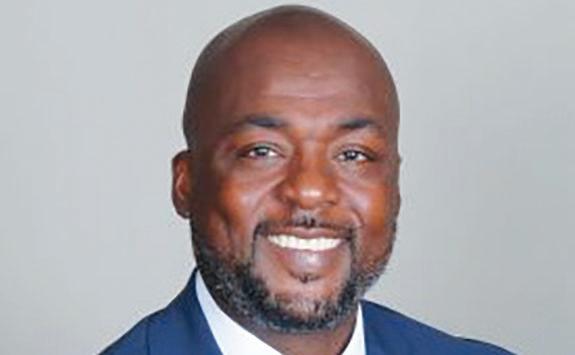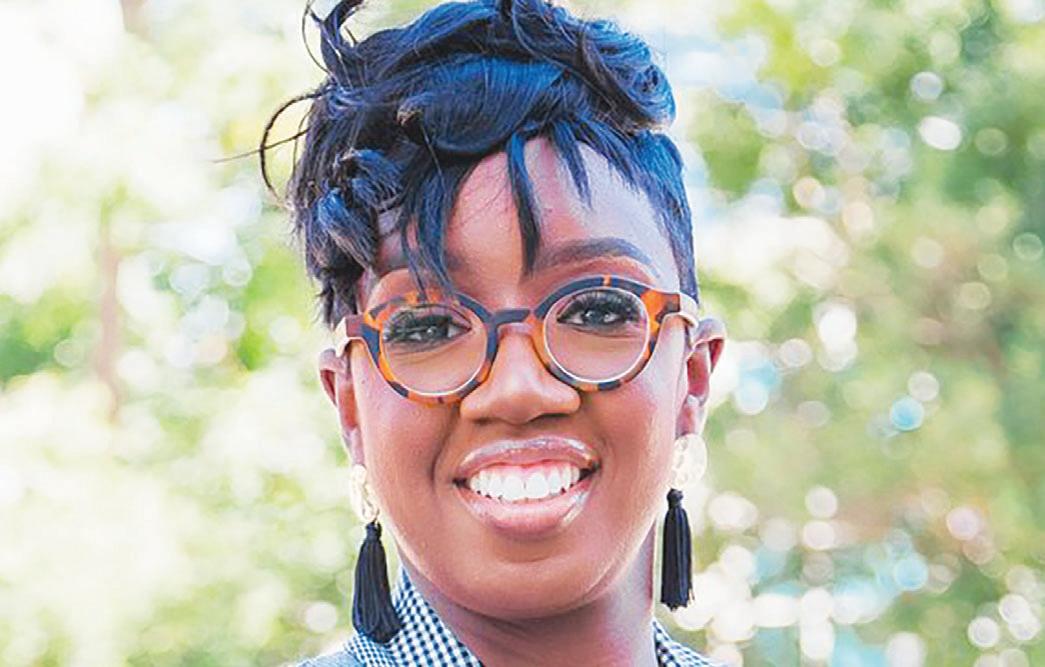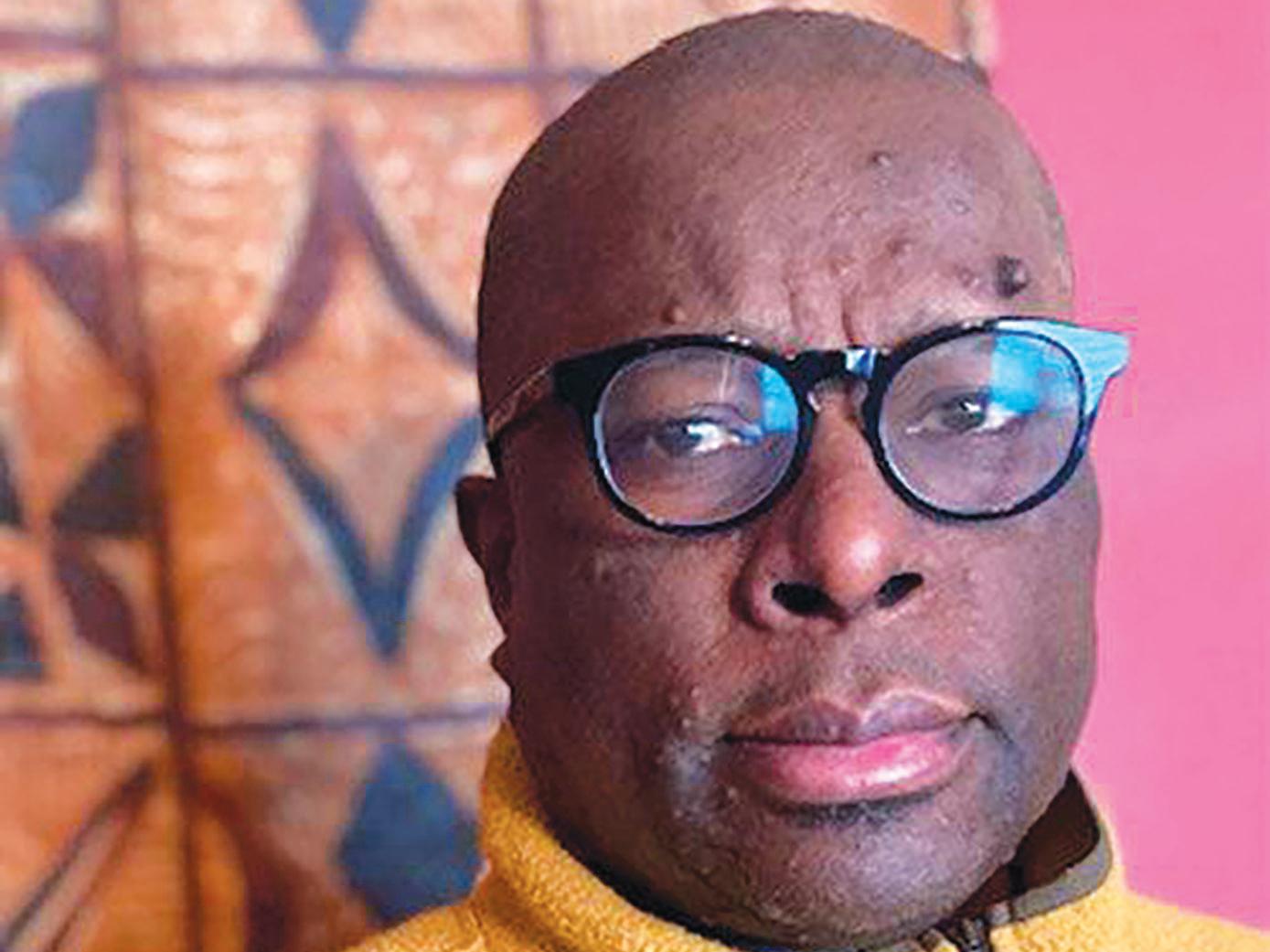
7 minute read
Why we must defend the right to teach an undiluted AP African American Studies course in our schools
BUFFALO, N.Y. (AP) — A white supremacist who killed 10 Black people at a Buffalo supermarket was sentenced to life in prison without parole Wednesday after relatives of his victims confronted him with pain and rage caused by his racist attack.
Anger briefly turned physical at Payton Gendron’s sentencing when a victim’s family member rushed at him from the audience. The man was quickly restrained; prosecutors later said he wouldn’t be charged. The proceeding then resumed with an emotional outpouring from people who lost loved ones or were themselves wounded in the attack.
Gendron, whose hatred was fueled by racist conspiracy theories he encountered online, cried during some of the testimony and apologized to victims and their families in a brief statement.
Their remarks ranged from sorrow to outrage, shouts to tears. Some vehemently condemned him; others quoted oppression. The laws are made by men who have little interest in him; they are executed by men who have absolutely no motive for treating the black people with courtesy or consideration. …” W.E.B. Du Bois, The Souls of Black Folk, 1903
I am having difficulty processing the fact that in the dawning days of 2023, one awakens to an explicit racist affront to American citizens’ ability to think critically about racism. That is precisely what The College Board AP African American Studies course was designed to do, give American students the tools to think critically about race and racism, until it was derailed by Florida Governor, Robert DeSantis and “The Stop W.O.K.E [Stop T.R.U.T.H] Act.” It is this derailment that The Florida Standard journalists, Zac Howard’s and Josh Miller’s expose in their January 19, 2023 coverage, “Exclusive: Rejected African American Studies Course in Florida Features CRT, Intersectionality and Queer Theory.” (https://bit.ly/ WOKEExclusive ). Among the first to report on The Act, they
Margaret Stevens House Session Daily
from the Bible or said they were praying for him. Several pointed out that he deliberately attacked a Black community a three-hour drive from his home in overwhelmingly white Conklin, New York.
“You’ve been brainwashed,” Wayne Jones Sr., the only child of victim Celestine Chaney, said as sobs rose from the audience. “You don’t even know Black people that much to hate them. You learned this on the internet.”
“I hope you find it in your heart to apologize to these people, man. You did wrong for no reason,” Jones said.
Gendron’s victims at the Tops Friendly Market — the only supermarket and a neighborhood hub on Buffalo’s largely Black East Side — included a church deacon, the grocery store’s guard, a man shopping for a birthday cake, a grandmother of nine and the mother of a former Buffalo fire commissioner. The victims ranged in age from 32 to 86.
Gendron pleaded guilty in November to crimes including murder and domestic terrorism motivated by hate, a charge that carried an automatic life sentence.
“There can be no mercy for you, no understanding, no second chances,” Judge Susan Eagan said as she sentenced him. She called his rampage “a reckoning” for a nation “founded and built, in part, on white supremacy.”
Gendron, 19, is due in a federal court Thursday for a status update in a separate case that could carry a death sentence if prosecutors seek it. His attorney said in December that Gendron is prepared to plead guilty in federal court to avoid execution. New York state does not have the death penalty.

The gunman wore bullet-resistant armor and a helmet equipped with a livestreaming camera as he carried out the May 14 attack with a semiautomatic rifle he purchased legally but then modified so he could load it with illegal high-capacity ammunition magazines.
Gendron was hustled out of a courtroom Wednesday after someone in the audience at his sentencing rushed at him. (Feb. 15)
“Do I hate you? No.
Do I want you to die? No. I want you to stay alive. I want you to think about this every day
A proposal for nearly $1.9 billion in capital projects across the state was unveiled Monday to the House Capital Investment Committee. Most of the funding — $1.5 billion — would come from bond sales and the remainder –$391.75 million – from the General Fund. The proposal came in the form of delete-all amendments to HF669 and HF670, both sponsored by Lee. “It’s long past time to bring in the public on this important bill,” Lee said in a statement. “Hundreds of critical infrastructure projects have gone unfunded. These are projects that are crucial to communities throughout the state, and inflation causes them to go up in cost the longer we delay this unfinished work. It’s time to complete the work of 2022. Minnesota can’t wait any longer.” to support small businesses. Community investment is central to financial wellness –and First Independence Bank is dedicated to investing in the Twin Cities. The MBCRE is encouraging businesses and individuals to get involved in the deposit challenge. Businesses can make deposits at one of the two Twin Cities FIB locations, while individuals may open personal accounts in-person or online at the bank’s website. The $1 Million Deposit Challenge continues through Juneteenth 2023. Learn more by visiting http://mbcredepositchallenge. com/ write:

“National outrage ensued after the state rejected an AP African American Studies course, but a copy of the syllabus obtained by The Florida Standard shows the course sought to teach progressive doctrines such as intersectionality and Critical Race Theory.” As one of the many scholars who advised The College Board in the preparation of the course, I felt the AP African American Studies
James_publicpolicyproject@msn.com Insight News Insight News Vol 50 No 9• The Journal For Community News, Business & The Arts • insightnews com Vol. 50 No. 9• The Journal For Business & The Arts • insightnews.com February 27, 2023 2023 - March 5, 2023 - March 2023
By: James Trice, CEO Public Policy Project Tiffani Daniels Managing Director for the MBCRE

Several members expressed appreciation for the work that has gone into the bill. Rep. Leon Lillie (DFL-North St. Paul) noted hundreds of hours of hearings and tours held across the state.
First-term Rep. Roger Skraba (R-Ely) appreciates how the bill reflects what he’s heard in committee this session. “I’m learning and it’s sticking.” The committee plans to take testimony Wednesday and mark up the bill Feb. 20. The hope, according to Lee, is to move the bill onto the House and Senate floors by early March. The Senate Capital Investment Committee plans to take up the bill Tuesday. Once this bill is passed, Lee said, the committee could then clear the decks and turn to other projects in the queue.
of your life,” Tamika Harper, a niece of victim Geraldine Talley, told Gendron. “Think about my family and the other nine families that you’ve destroyed forever.”
Gendron locked eyes with Harper as she
I moved my family to Minnesota (Twin Cities specifically) from the south side of Chicago in late 1989. Since then, I’ve had the honor and privilege of interacting with, learning from, being influenced by, and associating with great Black leaders, politicians, activists of social justice, religion, education, science, technology, social service, and a myriad of other professions.

This Black History month, I would like to recognize and pay tribute to the black leaders in Minnesota -past and present- that have had, and in some cases still have, an impact on my life and the lives of black Minnesotans as a whole. Though we may not always agree on how to best address the conditions and concerns of Black people, each in our own uniquely qualified, wellmeaning way, fight for the best interest of all Black people. The exception of course lies with “Black leaders” who hold antiBlack sentiments and subscribe to harmful tropes about Black people. This is an entirely different form of disagreement.

Nevertheless, it is a subject for another time.
In this piece, I’m talking about Black leaders who honestly and authentically want the best for Black people. To be clear, we are not a monolith. We
L. Blakey, PhD I N S I G H T N E W S I S A U D I T E D B Y T H E A L L I A N C E F O R A U D I T E D M E D I A T O P R O V I D E O U R A D V E R T I S E R P A R T N E R S W I T H T H E H I G H E S T L E V E L O F M E D I A A S S U R A N C E INSIGHT NEWS IS AUDITED BY THE ALLIANCE FOR AUDITED MEDIA TO PROVIDE OUR ADVERTISER PARTNERS WITH THE HIGHEST LEVEL OF MEDIA AS SURANCE. Commentary A tale of two presidents PAGE 5
don’t all think alike. We have disparate ideologies within the Black community. But don’t all communities? I’ve had strong disagreements with some of the most effective Minnesota Black leaders. But I have great respect for each of them and appreciate their work. Our collective pain, suffering, and struggle can cause us to fight each other and disagree on everything.
The glue that binds us regardless of ideology, that we recognize and understand, is that we have a common struggle and a common enemy; that enemy is global white supremacy - the substratum of racial inequities, oppression, and repression. Given this reality, there have been times when our differences have played out on the national and world stage.
Two examples come to mind. First, during the 1984 presidential campaign, Coretta Scott King, widow of civil rights leader Dr. Martin Luther King Jr, threw her support behind the White presidential candidate Walter Mondale, along with other prominent Black leaders, over Reverend Jesse Jackson, the Black presidential candidate, I would have thought that since Jackson worked with Dr. King and the Southern Christian Leadership Conference (SCLC) and participated in the Selma to Montgomery marches, he would have earned the support of Coretta. But unfortunately, that was not the case.
Review Roots Four Zero PAGE 7








